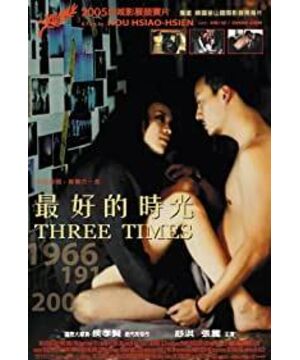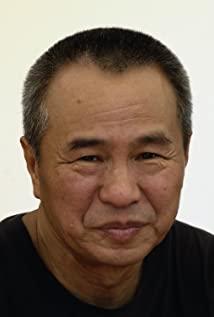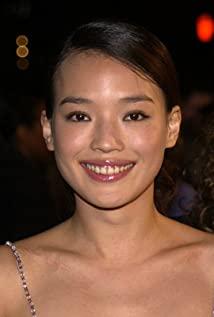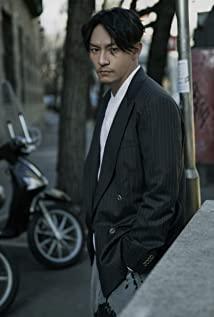’s jazz sounded slowly, orange lights, a narrow room, and the camera was casually cruising on the billiard table in the house. Such a long shot, like a model in a tartan dress walking gracefully on the catwalk, with misty eyes piercing the crowd, seeing another time, leaving only a face that stores some memories to make people guess.
This is how the story begins.
Storytelling is not Hou Hsiao-hsien's forte, some say. Yes, he was talking about memories, those strange things that make one's heart tremble when they happen to see, hear, think about it.
This movie is Taiwan, Taiwan's memory and love that he depicts tiredly while blowing smoke rings. Long and bitter.
A billiard table, a woman with curly hair, yellowish walls, occasionally walking to the wall, picking up chalk and skillfully writing down the score on the small blackboard, the guests played without a word, as if doing a solemn act. matter. There were green plants growing outside the room, rendered beautiful green in the fluffy light that filtered through the open door. Only the sound of billiards from time to time, the sound of women walking around the table and the song "smoke gets in your eyes" floated into people's esophagus, causing warmth in the stomach.
This is the first story of the film, Kaohsiung in 1966, about finding and encountering. The woman changed many billiard rooms from Kaohsiung to Chiayi to Huwei. The man she met in the Kaohsiung billiard room said she wanted to write to her. There is no pursuit, no commitment, no oath, this is the unique love of that era, only thick time and a letter, a light letter. For example, when he said "rain and tears" was playing in the barracks, he thought of her at this time, such as her twitching eyelashes holding his letter. Until one day, he ran all over Taiwan to find her, until that rainy day a long time later, he carefully held her hand.
At this time, Shu Qi and Zhang Zhen, speaking Taiwanese and experiencing the best time described by Hou Hsiao-hsien.
Like another smoke ring exhaled by Hou, a dark brown room appears after a few seconds of black footage, so, going back to 1911, I'd like to believe it was a winter's story, even though there wasn't a single exterior scene, I saw It was a small room with fine wooden furniture, a window that was always closed, and the unchanging gray blue outside the window.
The women in the house held delicate buns, and they played and sang Nanguan music in their ears. Sometimes they made a voice-over to caress the hands of the women by the fire, and sometimes they became the women's playing and singing during the banquet. A burst of sadness. The woman was a singing prostitute, and Shu Qi quietly added a characteristic stubbornness and sadness to her face. And Mr. Aiguo, played by Zhang Zhen, has a long-term relationship with her.
He went to her from time to time, but he never listened to her talk, he chatted with her, she understood his ambitions, his thoughts, his family, everything about him. She decided to help a little sister redeem herself and marry her, and gave up the chance of her own redemption. He understood and gave generously. She knew that he advocated monogamy, so she kept silent and never asked. There is no dialogue, not too many expressions, and if there is a seemingly absent piano melody between a few eyes, everything is clear. The pot of orchid that has always been placed in this dark house is like a helpless metaphor, it is squeezed by the husband's handbag and has no way to go back, indicating the fate of the woman.
It's a silent clip of the woman with her back to him, and then the subtitles say, "I want to ask you, have you ever thought about my life." She knew there was no answer, she always knew. The sobbing Nanqu sounded again, followed by an unforgettable scene - a woman sitting in front of the dresser, holding her orchid fingers, facing the mirror, wiping away her tears.
In 2005, the tones began to become more colorful, with white rooms, feasting bars, and thick and thick eye shadow. The girl's name is Jing. Due to premature birth, she was frail and sickly since she was a child. A car accident nearly blinded her in one eye. Hou smashed the cruel youth into front of the camera. In the sound like psychedelic rock, a girl like this slowly appeared - singing her own song expressionlessly in the bar, having a girlfriend she loved, living in In a very ordinary apartment in Taipei, I was madly falling into so-called love with a man. I liked the way that man took LOMO and filmed her singing. When he came back from his house in the morning, he heard the sound of his girlfriend jumping from the top floor. So, she had to choose to cry, even though she had forgotten how to cry.
I guess right, the story is unsettling and irrelevant. Because of the dark corridor in the man's house where the photos of the faces that cannot be seen clearly are posted, because the long iron wire railings on the stairs where the girl is squatting on the phone, cover the girl's face, because the picture is so crowded that the man is caught His computer was cornered to the right.
By the end of the film, all sounds are blurred and all boundaries disappear. Just know that this is the best time, not the best time of our time, but about the light and shadow of the best time in everyone's life. As for Taiwanese, Hou Hsiao-hsien gave such an answer.
It turned out that who passed who, who met who, who gave up who, how to console? It's like the bright red tattoo on Jing's neck and throat.
View more about Three Times reviews









